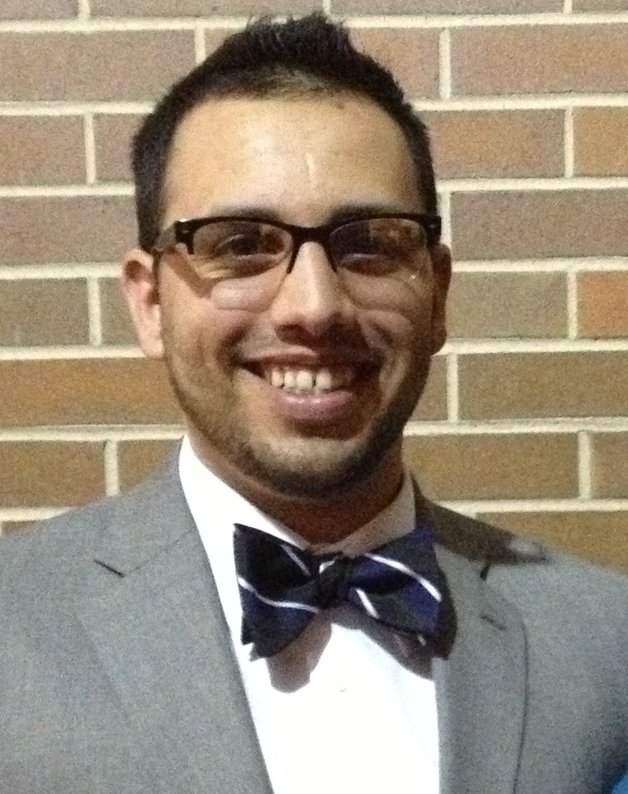When First Year Students enter the university each fall, they are provided the opportunity for a prompt and thorough indoctrination into the Notre Dame football culture. They learn the gestures, the cheers, and the songs that will punctuate their existence during their time on campus, and that will continue to help define their identities as alumni and alumnae long into the future. These traditions are not something that students have the option to create or define themselves. Rather, they are received: each student must ultimately decide whether or not their individual “I” will become part of the collective “We” of the Notre Dame student section.
There may be something of an analogy in this image, which allows us a window into what the Creed teaches us about faith. The recitation of the Creed at Mass seems to contradict everything we think we know about faith today. Faith, or belief, is something subjective: I search the abstract realm of faith for truth, and I decide in my own mind and heart what seems the most convincing and what I will assent to. This subjectivity clashes with the inherent objectivity of the Creed, which is essentially a laundry list of propositions (presented without supporting arguments), that we are required to profess every time we go to Mass. The Church literally puts words in our mouths to recite, and we obediently and thoughtlessly recite them.
But there is actually a dynamic interplay between “I” and “We” and “I” and “You” in the Profession of Faith. Joseph Ratzinger described it as a dialogue, as each article of faith that makes up the Creed is presented before the individual believer for him or her to give their assent to:
“Do you believe in One God, the Father Almighty…?”
“Yes, I believe in One God, the Father Almighty…”
“Do you believe in One Lord, Jesus Christ…?”
“Yes, I believe in One Lord, Jesus Christ…”
The Creed expresses in formula what was once (in the early Church) a dialogue. This formula teaches us that:
[...] belief is not the result of lonely meditation in which the “I”, freed from all ties and reflecting alone on the truth, thinks something out for itself; on the contrary, it is the result of a dialogue, the expression of hearing, receiving, and answering that guides man through the exchanges of “I” and “You” to the “We” of those who all believe in the same way (Introduction to Christianity, 90).
Faith, then, is not philosophy. Faith is something that is received, or rather something that is heard and responded to - like Notre Dame students receiving the traditions and culture that defines our school's student section. Faith comes from hearing: it is “the reception of something that I have not thought out, so that in the last analysis thinking in the context of faith is always a thinking over of something previously heard and received” (91).
What is more, faith is not an abstract search for truth: it is on a different plane from the realm of "idea" entirely. The profession of the Creed takes belief out of abstraction, then, and places it under our feet – it is concrete, common, and as hard as the ground we all walk on each day. In fact, it is the ground we walk on - it is the way. Ratzinger put it nicely when he wrote that "Christianity is not a system of knowledge but a way." Philosophy may provide an idea of truth, but Christian belief offers us the idea that truth is a way. This way is Jesus Christ.
Thus the Creed (and Christianity as a whole, for that matter) is not the rote recitation of a list of ideas or beliefs: it is the reminder of "the encounter with an event, a person, which gives life a new horizon and a decisive direction" (Benedict XVI, Deus Caritas Est: 217). And further, belief, in this paradigm, is not merely subjective (though there is something deeply personal in it), but a fellowship.
Thus belief embraces, as essential parts of itself, the profession of faith, the word, and the unity it effects; it embraces entry into the community's worship of God and, so, finally the fellowship we call Church. Christian belief is not an idea but life; it is, not mind existing for itself, but incarnation, mind in the body of history and its "We". It is, not the mysticism of the self-identification of the mind with God, but obedience and service: going beyond oneself, freeing the self precisely through being taken into service by something not made or thought out by oneself, the liberation of being taken into service for the whole (Introduction to Christianity, 100).
The Creed we recite is the locus where the "I" becomes part of the "We" - in some way it even carries us into the perfect expression of harmony and unity that is the Eucharist. Rather than simply list things that Christians believe, it is the foundation on which the whole thing is built.


